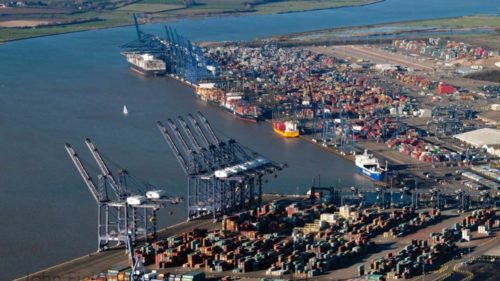
An opinion poll conducted in the United Kingdom by a global executive search firm, Odgers Berndtson, has shown that seaports in that country are ill prepared for the controversial Brexit.
The poll of about 100 port executives polled by the shipping and maritime practice of Odgers Berndtson showed that 10 weeks to a likely no-deal Brexit, potentially resulting in disruptions and congestion at UK ports, little or no planning has been done by the ports.
When leaders at UK port and harbour authorities were asked about their state of readiness, only 16% said they had made any “significant or practical” plans for Brexit. The remainder were equally split between ports doing “only some high-level planning” and nothing at all.
“The ports industry is keen to seize on any opportunities arising from Brexit, but this is the first real indication of what’s actually happening outside ports like Dover,” said Paul Butterworth, head of the Maritime & Shipping Practice at Odgers Berndtson.
According to the poll, although most (over 80%) UK ports have done little or no planning for Brexit, over half (59%) expect a negative or strongly negative impact; despite the lack of preparation, only 25% of UK port leaders think they are currently in a position to handle Brexit well. A third believe they could cope, but ideally with further investment, whilst over 40% either don’t know or doubt their ability to handle additional demands.
Physical blockages and additional complexity arising from Brexit are the principal concerns of leadership teams, with around half (respectively 43.5% and 52%) giving these as their most pressing worries.
Almost 80% gave physical infrastructure as their top priority for any further investment. Technology was first priority for 26%, with almost half (47%) making their second highest priority for additional investment. Most of the senior management teams (83%) believe their ports have the right people to lead in the short term. However, a similar number identified investing in senior people as a priority, albeit less urgent than infrastructure and technology.
Responding to the survey, the British Ports Association has suggested ports and terminals are considering a range of potential outcomes, stressing that the uncertainty has made it difficult for ports to make firm investment decisions in potential solutions.
Furthermore, like many others in the logistics chain ports are awaiting details from the government as to what the final trading environment will look like.
“The ports industry has been involved in extensive planning and discussion with the UK Government on the challenges a no-deal Brexit would present, but given that there is still no certainty around our trading relationship with Europe after Brexit it is not surprising that some ports have been unable to fully prepare,” Richard Ballantyne, the Chief Executive of the British Ports Association, said.
As explained, there is a variety of levels of exposure to Brexit challenges across the UK ports sector, stressing that ferry ports would be impacted the most.
“The industry has been working at a national level as well as with local resilience forums and other groups to ensure that ports and partners across the freight and logistics sectors – including Government agencies at the border – will be prepared for any potential disruption,” he added.
“This research underlines the importance of securing an agreement and negotiating a future relationship that does not put in place any new barriers to free flowing trade.”
Copyright Ships & Ports Ltd. Permission to use quotations from this article is granted subject to appropriate credit given to www.shipsandports.com.ng as the source.
